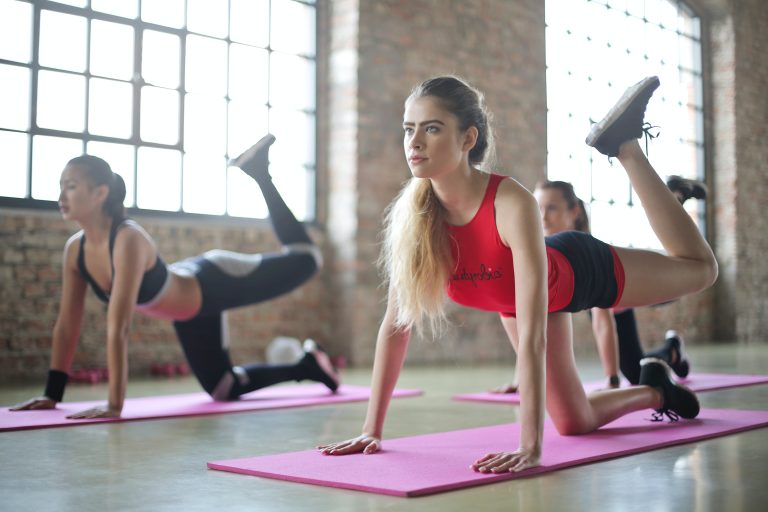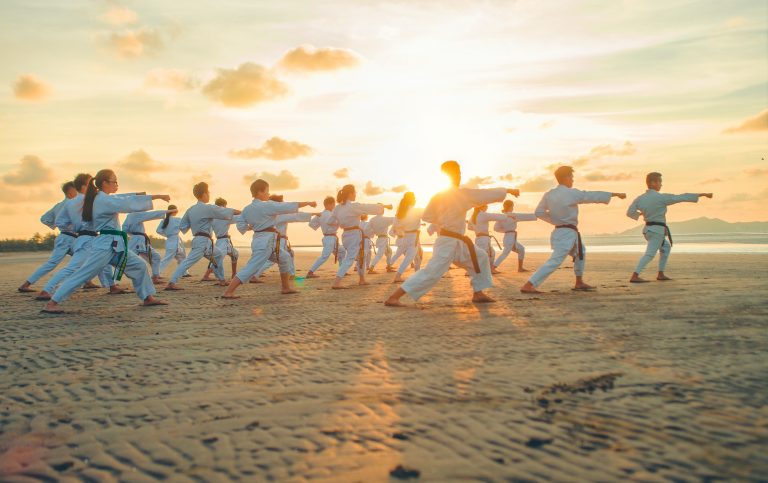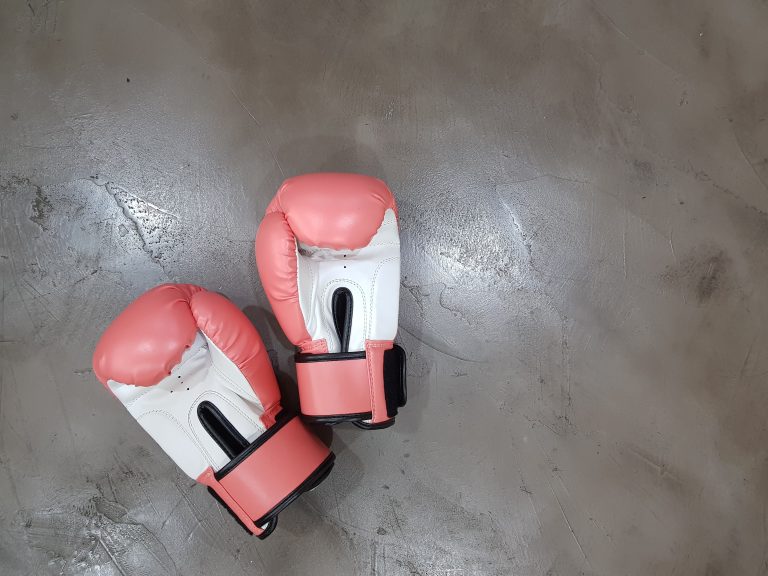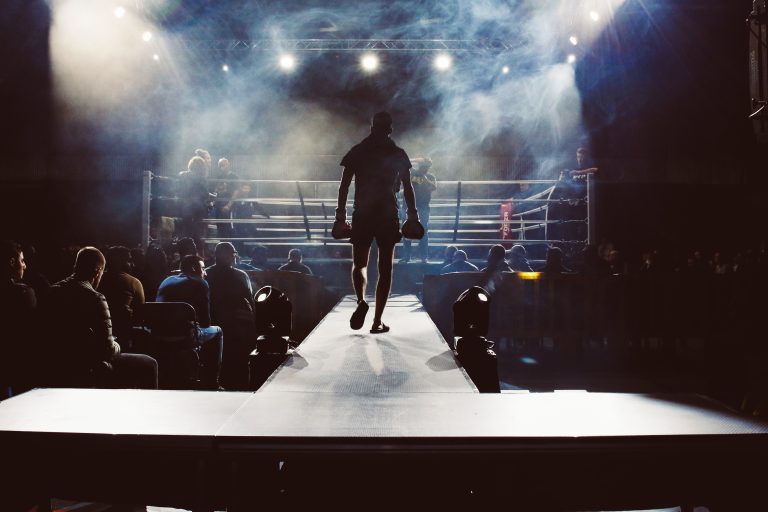Can You Learn Karate At Home Without a Sensei?
The question of whether one can learn karate at home without a sensei is a difficult one as it is an art that requires patience, dedication, and guidance. As karate is a traditional martial art with many forms and techniques, it is practically impossible to learn all the aspects of it on your own. That said, it is possible to learn the basics and the most important ingredients that enable you to function as a middling karateka.
Introduction to Karate
Karate is a Japanese martial art that combines striking (kicking, punching, and open-handed techniques) with blocking, takedowns, and throws. It is rooted in martial arts disciplines that date back hundreds of years originating from Okinawa, Japan.
Karate is an all-encompassing martial art, with an emphasis on effectiveness and efficiency in movement. The karateka (karate practitioner) uses their body shape, structure and timing to deceive, surprise, and overcome their opponent. Furthermore, the karateka gains mental and spiritual cultivation through rigorous training.
Can You Learn Karate At Home Without A Sensei?
So, the question remains: Can you learn karate at home without a sensei? The answer is both yes and no.
On the one hand, there is no denying that the presence of a sensei (a karate master or teacher) is critical for an effective understanding and mastery of karate techniques. The sensei will not only provide you with the correct techniques but will also help you refine and refine again to ensure they are smooth, efficient, and combat-effective.
On the other hand, yes, it is possible to learn the basics of karate at home on your own. You can start by watching online tutorials as well as reading various books or articles related to the topic. But there are limitations. Learning on your own may help when it comes to theory but there will be no opportunity for testing and developing your physical skills without a sensei. Therefore, the self-learning approach works only for those who are just curious about the art of karate but are not necessarily seeking to become adept masters of the art.
What Do You Need To Learn Karate At Home On Your Own?
If you want to learn karate on your own, then the first and foremost thing required is dedication. To learn karate you will have to motivate yourself to put in time and effort to develop your physical and mental skills. Below are some of the important things to have if you want to learn karate at home:
- Kata Manual/Tutorials
(to learn different moves) - DVDs or Videos
(to observe the pros in action) - Karate Gi
(the traditional uniform) - Makiwara (a punching post)
(used to practice punching) - Mats
(necessary for practicing throws and takedowns) - Target Dummies/Striking Bags
(to practice kicking and punching techniques) - A Friend With Knowledge/Experience
(to give feedback on technique)
How To Learn Karate Techniques At Home?
Once you have got all the required equipment, it is time to start learning karate techniques at home. The best way to do this is by following step-by-step guidance from reliable sources such as DVDs, online tutorials or reading books or magazine articles authored by experienced sensei or karate masters. You can also find demo videos from YouTube or other reliable websites which can be very helpful when it comes to learning terminology and technique names. To add more variety and spice up your training session you can look for more advanced techniques on tutorial websites such as Martial Arts Lab (martialartslab.net) or Karate Coach (karatecoach.net).
Once you have acquired knowledge about different moves, stances, strikes and kicks through videos, books etc., start practicing these moves at home. This can be done on your own but an even better approach is to practice these moves with a sparring partner or with a punching bag as it will give you more feedback on your technique and form. In addition to striking, blocks and takedowns, one should also practice on the makiwara (a punching post) to refine their punches as well as focus on their basics such as stances and footwork. Practicing with a makiwara will also help in introducing strength training into your workout routine.
Consistency is key when it comes to learning karate and mastering its techniques; so make sure that you practice different moves at least 3-5 days a week.
Conclusion
In conclusion, yes it is possible to learn karate at home without a sensei but one should keep in mind that such a learning approach will only cover the basics as there will be no opportunity for testing out physical skills without a sensei present. Nonetheless, with dedication and consistent practice at home along with mastering the basics through tutorials and books one can become decent karate practitioners without ever setting foot inside a dojo.
Can You Learn Karate At Home Without a Sensei? – The Ultimate Guide
Karate is an art form that requires discipline, patience, and dedication. But, what if you don’t have access to a sensei or a dojo to learn from? With the rise of online courses and tutorials, it has become easier than ever to learn karate at home. In this guide, we will explore the most frequently asked questions about learning karate at home without a sensei.
Is It Possible To Learn Karate Without a Sensei?
Learning karate at home without a sensei is indeed possible, but it requires a lot of dedication and self-discipline. There are many online resources and videos available that can help you in your karate journey. However, keep in mind that learning karate through online resources alone will not be as effective as learning under the guidance of a sensei in a dojo setting.
What Are The Benefits of Learning Karate at Home?
Learning karate at home can have many benefits, such as:
- Flexibility: You can create your own schedule and learn at your own pace.
- Cost-Effective: You can save a lot of money by avoiding the expense of joining a dojo.
- Comfortable Learning Environment: You can learn in the comfort of your own home.
- Self-Motivation: You will develop self-motivation as you will be solely responsible for your karate training.
What Are The Best Online Resources for Learning Karate?
There are many online resources available that can help you in your journey to learn karate at home. Here are some of the best online resources:
- YouTube: There are many karate tutorials and training videos available on YouTube that you can learn from.
- KaratebyJesse: Jesse Enkamp’s website has a lot of resources for karate enthusiasts and learners.
- KarateCoaching: Sensei Paul is one of the best karate instructors, and his website KarateCoaching has a lot of resources for beginner and advanced learners.
- Global Martial Arts University: This online university has a variety of courses and tutorials for karate learners of different levels.
What Are The Challenges of Learning Karate at Home?
While learning karate at home comes with its own benefits, there are also challenges. Here are some of the challenges:
- No Direct Feedback: While practicing karate moves at home, you won’t have a sensei to give you direct feedback on your technique and form.
- No Support: You won’t have fellow learners to train with or an instructor to turn to when facing issues with karate moves or techniques.
- No Real-Life Scenarios: You won’t be able to practice karate in real-life scenarios, like sparring or competitions, which are essential to becoming proficient in karate.
How Can You Overcome The Challenges of Learning Karate at Home?
While the challenges of learning karate at home can seem daunting, there are some ways that you can overcome them. Here are some tips:
- Record Your Training Sessions: Record your training sessions and review them to identify mistakes in your technique and form.
- Utilize Online Communities: Join online communities of karate enthusiasts where you can ask for advice, feedback and connect with fellow learners.
- Attend Seminars: Attend seminars and workshops held by professional karate instructors to learn and practice specific techniques in real-life scenarios.
Conclusion
Learning karate at home without a sensei is indeed possible, but it requires a lot of dedication, focus, and self-discipline. While learning online can help save you money and provide a flexible schedule, it cannot compare to the value of learning karate under the guidance of a sensei. However, if you are unable to access a dojo, you can utilize online resources and communities to aid you in your journey. Consistency is key to becoming proficient in karate, so make sure to practice regularly and seek feedback to continuously improve your technique and form.
Inhaltsverzeichnis






